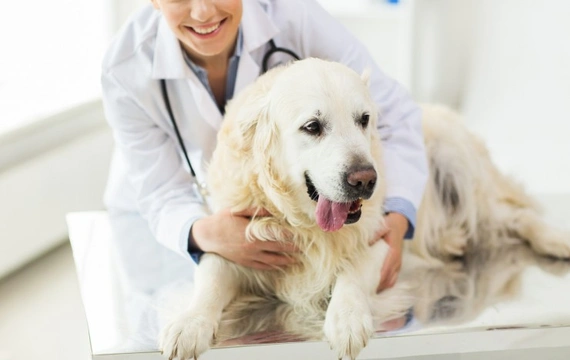
Can you Vaccinate a Pregnant Dog?
If your dog is pregnant, a great deal of the health and immune status of her puppies in the weeks immediately following the birth will depend on the status of the dam herself, which means that it is important that your dog be vaccinated before she is mated.
However, if you find yourself with an unexpectedly pregnant bitch or have taken on a dog that was pregnant when you go her, things get more complicated!
Whilst it is risky for pups to be born to an unvaccinated dam, there are also risks involved in vaccinating a bitch when she is already pregnant-so is there a way around this, and what is the best course of action to take care of both the health of the dam and her puppies?
In this article, we will look at some of the problems and challenges of vaccination in pregnant bitches, and some of the options to work around them. Read on to learn more.
Normal vaccines and pregnant bitches
In the UK, we generally administer a combined vaccine to dogs, which contains protection against all of the core transmissible canine health conditions in one shot. The kennel cough vaccine must be administered separately, however, as this vaccine does not function in injection form.
Vaccinating a healthy adult dog is usually a totally safe procedure, aside from the rare instances in which a dog proves to be allergic to the vaccine or one of its components. If this occurs, it is wise to ask your vet to buy in individual vaccines for each condition and leave out the one that the dog reacts badly to, in order to offer them the most appropriate form of protection against disease.
However, when a bitch is pregnant, vaccination becomes more risky, and can potentially lead to spontaneous abortion of the puppies in a small but significant number of cases.
This is because the vaccines that we use for dogs are usually live vaccines, which trigger the immune response of the dog to produce antibodies against the condition in question, without actually making them ill. Whilst this is fine for adult dogs, pups in-utero are vulnerable to the live component of these shots, which is where the risk of spontaneous abortion comes into play.
Alternatives to standard vaccines
If you have a pregnant bitch that has not been vaccinated, you are faced with a difficult dilemma, with an element of risk in all of the available options. If you don’t have the bitch vaccinated, the chances of her puppy picking up a communicable disease before they are old enough to have their own vaccinations rises considerably; but if you do use normal vaccines for the dam, there is a risk of losing the puppies.
However, there is another option, which involves asking your vet to buy in some special order-only vaccines that are designed for use in pregnant bitches, which lack the live component of the vaccines that can pose a risk. These are more expensive than standard vaccines, and have some other limitations too.
When a litter is born, they receive a degree of protection from the immunity of their dam, which naturally wears off by the time the pups reach around eight weeks old. Before that time, the effectiveness of any vaccination given to the pup may be compromised by the puppies own inherited immunity, making the vaccinations less effective than normal or even completely ineffective.
This is why we do not vaccinate puppies under the age of around eight weeks old.
However, if you vaccinate a dam when she is pregnant (using either a live or a deactivated vaccine) this caused a spike or surge in the dam’s immune responses while she is pregnant, which in turn is passed onto the puppies.
This means that when they reach eight or so weeks old, the level of immunity that they received from their dam may still be active, which can again compromise the effectiveness of their own vaccinations.
Making the right choice
There is no easy answer when it comes to whether or not you should seek vaccination for a pregnant dog, but considering all of the factors and weighing up the odds can help you to make a decision.
If your dog has previously had all of her vaccinations and boosters but these have lapsed by less than a year or two, it is generally wise to delay vaccinations until after the puppies are born. This is because the dam will still have a level of protection thanks to her previous vaccines.
If your dam has never been vaccinated, it is wise to talk to your vet on a case by case basis and find out what options and alternatives they can offer to the standard vaccines, and the risks involved.
If you do choose to vaccinate your dam, you may have to delay the pups’ own vaccinations to prevent them being compromised, which means an increased risk for the pups up until this point.
If you choose not to vaccinate the dam when she is pregnant, the pups will be able to have their own first vaccinations at the normal time; however, they will be very vulnerable to disease in the meantime, which means that keeping them indoors and away from other dogs and sources of infection is more important than ever.



